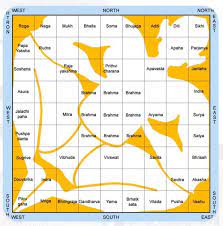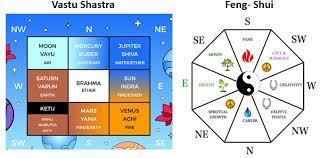Introduction
Vastu Shastra, an ancient Indian science, offers profound insights into creating harmonious and positive living spaces. In the realm of Vastu, the role of plants and gardens is crucial. They are not just decorative elements but play a significant role in channeling positive energy into your home. In this blog, we will explore the importance of plants and gardens in Vastu and how they can enhance the positive energy in your living environment.
Plants as Living Energy
In Vastu, plants are considered to be living entities with energy. They are believed to radiate positive energy, purify the air, and enhance the overall ambiance of your home. Plants symbolize growth and life, contributing to the harmony and vitality of your living space.Choose the right plants: Vastu Shastra recommends that the plants in your home need to be chosen with utmost care and should be placed in the right direction, to ensure they channel positivity and well-being to the residents hosting them .
Natural Balance
Plants bring a natural balance to your home’s energy. They help absorb and neutralize negative energy while amplifying positive vibrations. By nurturing a green environment, you create a space that is in tune with the natural world and the elements.
Garden Placement
In Vastu, the location and layout of your garden hold significant importance. For an optimal garden placement, it is recommended to situate it on the northern or eastern side of your home, as these directions are associated with positivity and auspiciousness. A thoughtfully designed garden can serve as a haven of tranquility and relaxation.
Strategic Placement: When it comes to substantial plants and lush trees, it is advisable to cultivate them in the southwest area of your home, typically in the backyard or garden. This placement is believed to bring about stability and enhance the potential for success.
Basil, a sacred plant, should ideally find its place in the east or northeast direction as per Vastu guidelines.
Auspicious Plants
Incorporate auspicious plants in your garden and home. In Vastu, certain plants are believed to bring specific benefits. For instance, the money plant is thought to attract wealth, the tulsi (holy basil) plant is associated with positive energy, and the jasmine plant can foster a sense of calm.
Maintenance and Pruning
Maintaining your garden and plants is essential in Vastu. Overgrown and neglected gardens can harbor stagnant energy. Regular pruning and care not only promote healthy plant growth but also ensure that positive energy flows freely.
Positive Entry Points
Plants can also be used strategically to create positive energy at entry points. Placing attractive and vibrant plants near the entrance can welcome good energy into your home, making a positive first impression.
Avoid Thorny Plants
In Vastu, the presence of thorny or prickly plants in your garden or indoors is generally discouraged. These plants are thought to generate negative energy and potentially disrupt the flow of positive vibes. Notably, cacti and other thorny plants, with the exception of roses, are often advised to be removed from the house. This recommendation stems from the belief that these plants might adversely affect familial relationships and possibly attract bad luck.
Feng Shui Influence
Vastu and Feng Shui share some principles when it comes to using plants for positive energy. Both suggest using indoor plants like bamboo, money plants, and peace lilies to enhance well-being and prosperity.
Decorative Elements
Incorporate decorative elements like garden sculptures, water features, and wind chimes in your garden to amplify the positive energy. These enhancements add a touch of beauty and elegance while enhancing the flow of positive vibes.
Mindful Placement
Incorporating indoor plants within your home requires thoughtful consideration of the specific Vastu zones they influence. For instance, the northeast corner is an ideal spot for a money plant, while a peace lily can enhance the energy in the southwest corner. These strategic placements not only add to the visual appeal of your living space but also infuse an atmosphere of peace, tranquility, and overall well-being into your home.
Avoid certain trees: According to Vastu Shastra, trees that attract worms, serpents and owls, among others, should not be planted in the vicinity of a home as they attract evil spirits. For example, Peepal tree or sacred fig (Ficus religiosa) and Banyan tree (Ficus benghalensis) should not be placed within the boundaries of a home but belong near places of worship like a temple 2.
Conclusion
Plants and gardens are not just aesthetic additions to your living space; they are integral to creating a harmonious and positive environment in accordance with Vastu principles. By choosing the right plants, maintaining them diligently, and designing your garden thoughtfully, you can invite the forces of nature to infuse your home with vitality and positive energy. Remember that Vastu is a holistic approach to living spaces, and the principles can be adapted to suit your personal preferences while ensuring a balanced and positive energy flow within your home.




